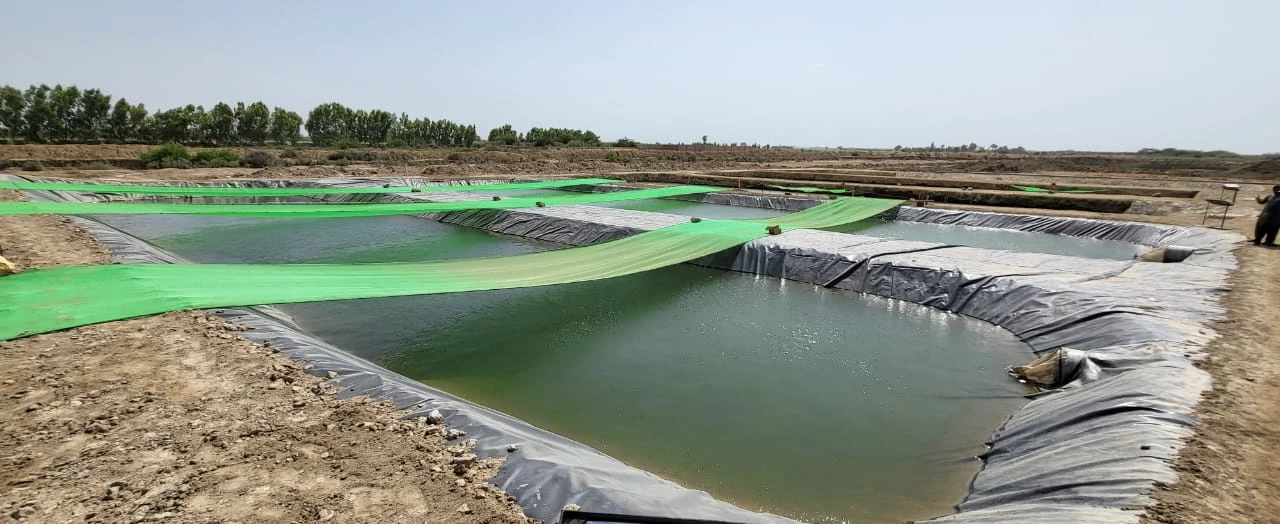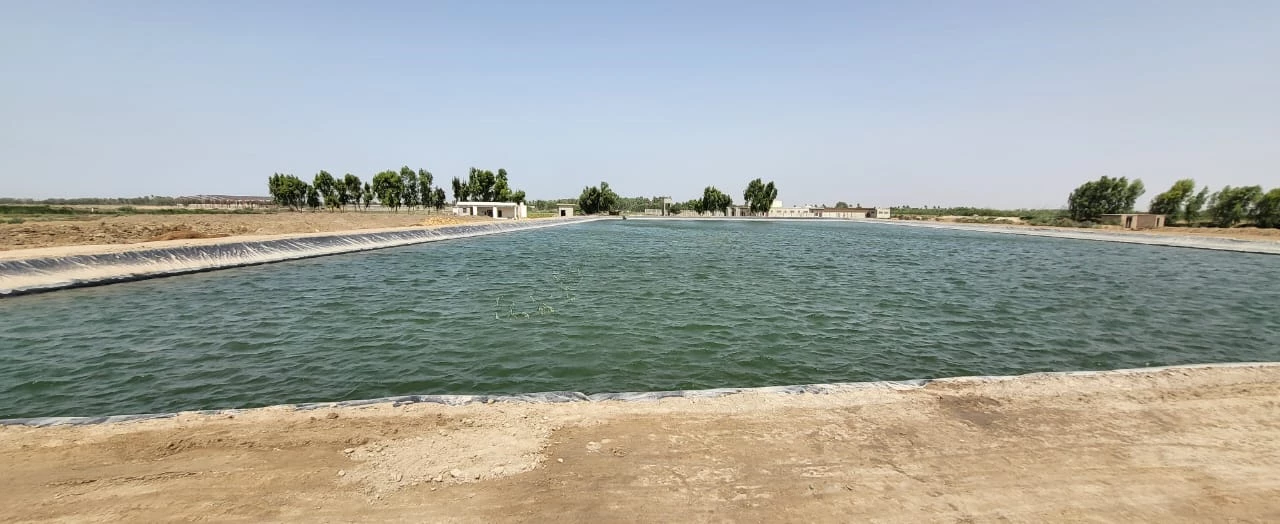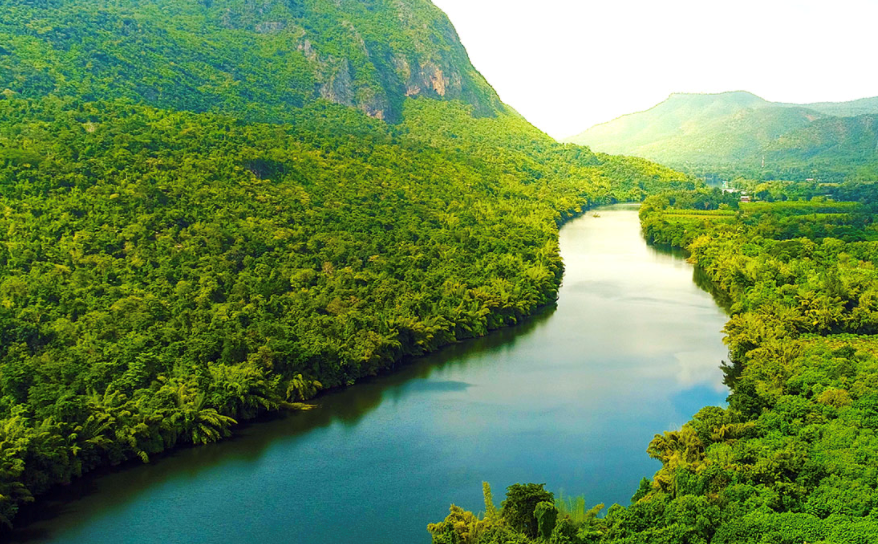The DFCD supports freshwater fish hatchery in Pakistan
The Dutch Fund for Climate and Development (DFCD) has intend to contract grant support for Aquahatch developing a freshwater ecosystem in Pakistan.
Aquahatch is planning a Tilapia and Pangasius hatchery in the Southern Sindh region of Pakistan. The company will grow seedlings and fingerlings and sell them to local fish farms.
The project has been put forward by the World Wide Fund for Nature Netherlands (WWF-NL) which manages together with SNV Netherlands Development Organisation the DFCD’s Origination Facility to develop new projects for the investment fund. With the approval of the grant, WWF has the intention to sign a €349,415 grant funding agreement with Aquahatch.
Overfishing
Fishery is an important sector in Pakistan, with one million people directly depending on it. The Southern Sindh region which has a coastal belt of 352 kilometers, is the country's biggest fish producer. Besides coastal fishery, the region has a lot of freshwater fishing in the Indus River, associated streams, and a large number of lakes.
The fast-growing Pakistani population and its demand for affordable fish protein puts the freshwater ecosystem at constant stress due to overfishing and the introduction of invasive species. This disrupts the balance of the ecosystem and diminishes biodiversity.
Fish farms reduce pressure on freshwater ecosystem
Aquaculture, commonly known as fish farming, is one way to reduce the pressure on freshwater bodies. There is great potential to develop the freshwater fish sector in Pakistan. It produces 200 million seedlings annually, while there is demand for 330 million.
The country is currently importing seedlings from Thailand and Vietnam to meet local demand. Existing farms can raise their productivity and quality, while there is a lot of room to develop new farms. Nearly all fish farms use seedlings. These 2.5 centimeter fishes are cheaper than the larger fingerlings (10 to 13 cm), but have a mortality rate of about 60% and take around 16 months to mature to marketable sizes.

Fingerlings create higher income
Aquahatch will offer local fish farms an alternative by selling fingerlings. These fishes have a mortality rate of around 30% and give fish farms a better sale price, as you can sell them earlier at a better weight thus a better price. Estimations from the company show that the income of local fish farms can increase over 400% when fingerlings are bought instead of seedlings, despite the higher purchase costs compared with seedlings (twice the price) and higher feed costs (2,6 times higher)hase.
To grow the fingerlings, Aquahatch will be building a freshwater hatchery. The long summers and warm winters in the region offer a favourable climate for farming fingerlings. They can grow during the winter and will be ready in March when fishs farms stock up their ponds. Fingerlings are able to reach marketable premium size in 8 months from fingerling size to market.
Organic farming
The project will only use organic feed and at no time will it use chemicals or pesticides in the breeding cycle. By using organic feed, Aquahatch avoids the usage of approximately 90 tons of antibiotics, chemicals, and pesticides annually.
The water in the ponds will be changed after each season and the used water will be utilized for agricultural purposes in the project area as it is chemical free and rich in organic matter. The hatchery will also fully operate on renewable energy, which is possible because it is situated in the wind corridor Gharo-Dhabeji.
Supplying 15% of local demand within five years
The grant from the DFCD will be used to set up a one-year pilot to build and test the first hatchery of 12.5 hectares. Aquahatch wants to prove its company is commercially viable. It aims to sell 5 million fingerlings and 4.4 million seedlings in the first year.
Upon a successful outcome, the DFCD will be requested to provide a €5.9 million three-year loan. With this funding, Aquahatch will expand its business to a 66.7 hectares hatchery over the following four years that will produce around 50 million fingerlings. At this point the nursery will be able to supply around 15% of the local demand.

Key Impact Measures
- 50 million fingerlings will be available in five years, making up 15% of local demand.
- 4,500 tons of carbon emission will be achieved by planting around 250,000 native trees at an area owned by Aquahatch not used for aquaculture.
Stuart Beavis, Regional Lead WWF DFCD Asia
"Aquahatch is an innovative hatchery concept backed by a consortium of four companies in the Sindh, Indus Delta Region. It will enable local fish farms to purchase 4-5 inch fingerlings and will add to protein consumption across the region."
Faisal Iftikhar, CEO Aquahatch
“Pakistan is on the verge of embarking on its Blue Economy Journey, even though we are late then most countries. At Aquahatch, we take this as positive because we will not have to make the mistakes other countries made at their early stages. We have a clear vision for the future. Our Blue Revolution will now be Green. Its impact on Pakistan’s economy as a whole and on the Indus Delta Eco Region specifically will be profound."
Contact
For more information, Stuart Beavis, Regional Lead WWF DFCD Asia Pacific at sbeavis@wwf.org.hk.
In case you have any grievances in relation to this project of the DFCD’s Origination Facility, please contact us through our service desk at servicedesk@wwf.nl.
About Aquahatch
Aquahatch is a private company incorporated in November 2021 and managed by Faisal Iftikhar. It is backed by a consortium of 4 shareholders from Hungary and Pakistan: Garib Sons and Jaffer Brother Agro Services with a background in agriculture and Vita Fort and Deep Blue Seafoods, with a background in aquaculture and fishery.
About DFCD
The Dutch Fund for Climate and Development (DFCD) is a climate fund, dedicated to supporting climate adaptation and mitigation projects which benefit vulnerable communities and landscapes. Initially funded by the Dutch government, it is powered by a consortium of four expert organisations: FMO (Dutch Entrepreneurial Development Bank), CFM (Climate Fund Managers), SNV, a global development partner, and WWF Netherlands.

